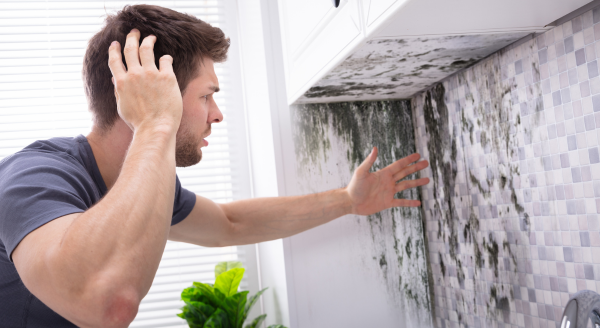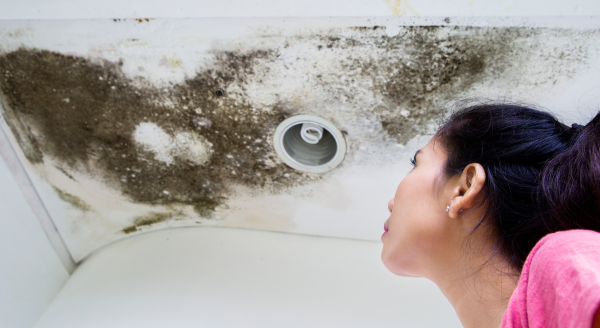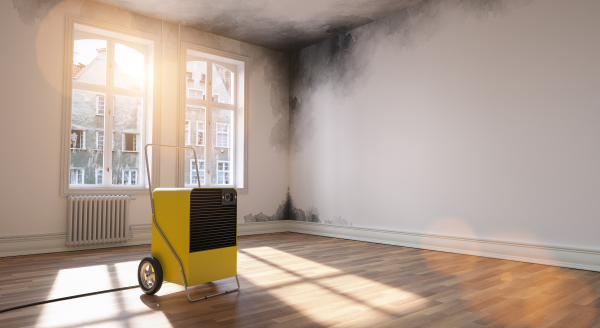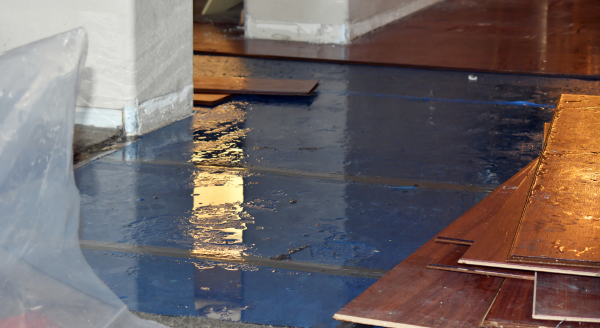When it comes to mold in your client’s home, not all varieties are created equal. Imagine two molds: one, a mere nuisance, the other, a potential health hazard. This is the stark reality when comparing black mold to other common household molds. But how do you differentiate between the benign and the malevolent? Let’s learn what sets black mold apart from its less threatening counterparts.
By the end, you’ll not only spot the differences but also know how to tackle each type effectively.
Demystifying Black Mold: What You Need to Know
When you hear “black mold,” it’s normal for your mind to race with concerns. Known scientifically as Stachybotrys chartarum, black mold isn’t just any household fungus. It’s a topic shrouded in misconceptions and genuine worries. Let’s break it down and understand what black mold truly is and why it matters.
Key Characteristics of Black Mold
Black mold appearance is easily recognizable by its dark color, ranging from deep green to black, and its slimy texture. Unlike some molds that look powdery, black mold has a more ominous, slick appearance. It loves moisture! Black mold thrives in consistently damp environments. Think about those leaky pipes, areas around bathroom tiles, or any place that’s been exposed to water for an extended period. Got a musty, earthy odor in the home? That could be a sign of black mold. Its distinctive smell is a telltale sign, often alerting licensed mold inspectors in Florida to its presence even before it becomes visible.
Why Should You Be Concerned?
The main worry with black mold lies in its potential to release mycotoxins. These toxins can cause a range of health issues, especially in those with compromised immune systems, respiratory conditions, or allergies. If you’re exposed to black mold, you might experience symptoms like chronic coughing, sneezing, eye irritation, and even skin rashes. In severe cases, it can lead to respiratory complications. It’s crucial to note that not all black-colored mold is Stachybotrys. Sometimes, harmless molds can be mistakenly identified as black mold. Therefore, proper identification by a professional is key.
Contrasting Black Mold with Other Household Molds
After unpacking the specifics of black mold, it’s time to place it side by side with other common household molds.
Common Household Molds: A Quick Overview
Before diving into the comparison, let’s briefly look at some typical household molds:
Aspergillus: Often found in air conditioning systems and on food, this mold varies in color from white to green.
Penicillium: Known for its blue or green color, it’s commonly found on food or in water-damaged buildings.
Cladosporium: This black or green mold grows on both cold and warm surfaces, like fabrics and under floorboards.
Key Differences Between Black Mold and Other Molds
- Location and Growth Conditions:
- Black Mold: Prefers continuous dampness, often stemming from water damage.
- Other Molds: Can grow in less consistently moist environments, like on old food or in humid bathrooms.
- Health Impact and Severity:
- Black Mold: Known for potentially severe health risks, especially respiratory issues.
- Other Molds: Generally cause milder symptoms, mainly allergic reactions or irritations.
- Appearance and Detection:
- Black Mold: Dark, slimy appearance with a strong, musty odor.
- Other Molds: More varied in color and texture, and can be powdery or fuzzy.
Understanding the Risks: While black mold often gets the spotlight for its health risks, it’s important to remember that any mold in the home, if not addressed, can lead to health issues and structural damage. The key is not to panic but to understand and identify the type of mold you’re dealing with.
Navigating Health Concerns: Black Mold vs. Other Molds
When it comes to health, understanding the potential impacts of different types of molds, especially black mold, is crucial. Let’s delve into the health concerns associated with black mold compared to other household molds.
Black Mold: A Closer Look at Health Risks
Exposure to black mold for a prolonged period can lead to serious respiratory problems, such as difficulty wheezing, breathing, and in severe cases, lung inflammation. Black mold can trigger allergic responses, such as sneezing, itchy eyes, and skin rashes, especially in sensitive individuals. Black mold can have toxic effects. The mycotoxins produced by black mold have been linked to more severe health problems, affecting immune and neurological systems.
Health Impacts of Other Household Molds
Common household molds are known to cause allergic reactions similar to those caused by black mold, though usually less severe. These molds can exacerbate conditions like asthma and chronic respiratory issues but typically don’t lead to serious health complications.
Comparing the Health Risks
Severity and Frequency: While black mold is associated with more severe health risks, it’s less common than other household molds, which are more likely to cause mild, but more frequent, allergic reactions.
Vulnerable Groups: Individuals with weakened immune systems, respiratory conditions, or mold allergies are more susceptible to the effects of both black mold and other household molds.
While black mold poses more serious health risks, other household molds shouldn’t be ignored, as they can still affect your health and comfort. Understanding these differences helps in making informed decisions about mold management in the home.
Embrace a Mold-Free Life with Confidence
Wrapping up our journey through the world of molds, you’re now equipped with the knowledge to distinguish between black mold and other common household molds. This understanding is crucial for maintaining a healthy living environment.
Looking to deepen your expertise in mold identification and remediation? NETI offers comprehensive courses and certifications to transform your concerns into competence. NETI’s mold assessor training in Florida provides the skills and knowledge needed to tackle mold challenges effectively.









